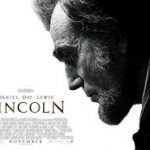Like a lot of folks, I recently saw the movie Lincoln – and I came away with more than an American history lesson. It was a terrific movie – whether you study the Civil War, love political drama, or follow Academy Award contenders. But you may also leave the theater as I did — inspired by its powerful portrait of effective leadership.
As we watch Lincoln work toward his goals — to both end the war and abolish slavery – he relies on skills and strategies that are classic examples of strong leadership guided by vision and values. Its lessons in emotional intelligence are ready for prime time in all our work lives.
Emotional intelligence: You Can Learn It from ‘Lincoln’ at the Movie
No one knew the term “emotional intelligence” back in 1865 when Abraham Lincoln led the U.S. House of Representatives to pass the Thirteenth Amendment to the U.S. Constitution abolishing slavery.
But that story – as told in the new movie “Lincoln” – is a great illustration of those qualities popularized by psychologist Daniel Goleman in best-selling books and a landmark article in Harvard Business Review.
I confess that I didn’t expect to be thinking about emotional intelligence when I settled into my movie seat over the holidays.
But the story hit home for me.
In my experience working with individuals and organizations for more than two decades, I have come to believe that emotional intelligence is the single strongest predictor of success – not that Ivy League degree, not technical know-how, not logging the longest hours on the job.
The key is a capacity for understanding ourselves and others. And the best part: emotional intelligence can be cultivated throughout our lives. We can all work on it with practice, reflection, reading, feedback and personal enthusiasm for the challenge.
Emotional Intelligence: the Movie
How did Lincoln display emotional intelligence? We’ve captured examples below of his self-awareness, self-management, social awareness and relationship-building skills shown in the movie.
First, self-awareness: Emotionally intelligent people know their own emotions, strengths, values, and goals, and recognize their impact on others.
Lincoln became famous, of course, as a stirring speaker – a man of few words, all well-crafted, the movie reminds us, as a series of young soldiers recite the 10-sentence-long Gettysburg Address. Lincoln’s body language is equally expressive – surprisingly intimate and warm for a tall and imposing man, whether he is touching a young Army veteran or leaning close to talk with telegraph clerks as a key message is relayed. He is also a good listener – whether he’s hearing out constituents, legislators, soldiers or members of his cabinet. And he recognizes that his strengths in story-telling and humor help him break the ice, make a point or dissolve a fierce deadlock among members of his cabinet.
He is a master of many styles of persuasion – from anecdote to powerful metaphors to the rare blunt directive: “I am the President of the United States… clothed in immense power…and you will procure me these votes.”
Most of us learn about our skills, strengths, and vulnerabilities through trial-and-error in life. We can strengthen our understanding by paying attention to how others see us and respond to us. And we can seek honest feedback from family members, friends, and colleagues at work.
Second, self-management: Clearly it’s important to have your emotions in reasonable control to work effectively with others.
This movie’s Lincoln is a man of patience and perseverance. In one memorable early scene, Lincoln lays out his plans to press for immediate passage of the amendment to Secretary of State William Seward … who immediately and furiously declares the timing impossible. Lincoln smiles and says pleasantly, “I like our chances now”. . . and carefully explains the opportunities of that time frame, including lame-duck Democrats who might be persuaded with the promise of jobs.
At another key point in the movie, Lincoln retreats to think as he weighs his two challenges — timing the vote on slavery with a negotiated end of the war. “At times like this,” he says, “I’m best alone.”
So how restrained are you under pressure? What helps you manage your emotions well – and what regularly sends you off track? What strategies help you weigh difficult decisions? Do you retreat-and-think as Lincoln did – or have you found it helps you more to talk through decisions?
Emotionally intelligent people recognize that it takes personal commitment and perseverance in the face of setbacks to achieve goals. Lincoln is conscious of the need to stay the course: “The compass points you true north,” he says at one point, “but does not warn you of obstacles and swamps along the way.”
In an interview, Doris Kearns Goodwin, author of the book, “Team of Rivals,” upon which the movie is partly based, put it this way: “Because he lost so many people when he was young — his mother and his sister and his first love — he came away with the thought that if he could accomplish something worthy then he would live on in the memory of others.”
Many of us can relate to the goal of a legacy – of having your life and work matter. And we can learn from Lincoln how we must continually shape new strategies as setbacks and obstacles arise.
Third, social awareness: It’s important to build relationships and understand people – recognizing diverse values and motivations.
Lincoln excels at this component of emotional intelligence, whether he is bargaining for support in a cabinet that is famously brilliant but not always like-minded or persuading diverse legislators to support his cause.
There is no one-size-fits-all approach. He uses praise as he urges abolitionist Thaddeus Stevens to temper his arguments. He talks about the honor of a dead brother to another legislator. “It’s so very close,” he urges someone else gently. “Please see what you can do.”
Being a good listener and a thoughtful observer can help us build our capacities for empathy.
Fourth, relationship-building: Emotional intelligence relies on building relationships and motivating teams – ultimately to move people in the desired direction.
“Lincoln” reminds us of the diverse skills it takes to lead a team – from strong one-on-one conversations to rhetoric and action that persuade many. Doris Kearns Goodwin says his speeches were “filled with such poetry and clarity that people felt they were watching him think and that he was telling them the truth.”
Or, she says, “he’d be in the middle of a terrible Cabinet meeting, and tell this funny story and make everyone laugh.”
At one point in the movie, Lincoln comes up with a powerful metaphor for ending slavery to keep his team motivated. As the vote on the amendment draws near, he compares them to whale-hunters “who finally have the harpoon in … on a whale we’ve have been chasing a long time.”
Most of us are not pursuing goals as ambitious – but we can all relate to the challenge of helping our teams find the most meaning in an ambitious goal and stay the course for the last big push.
A final point: Doris Kearns Goodwin – in many interviews as her book was published – used the term emotional intelligence to describe Abraham Lincoln.
In a talk on public radio, she said:
“What he had going for him, which I think is so unusual in political life, is that he had a set of emotional strengths that today we might call emotional intelligence. So when all sorts of rivalries sprung up … when they got hurt with one another, when they would call each other names, he was somehow able to be in the center of that storm.”
“When their feelings would be hurt, he’d be able to write a letter saying, ‘If I hurt you in any way I did not mean to do so. Forgive me for things that I might do hastily.’
“When he was upset with somebody, he would write what he called a ‘hot’ letter and put it aside until his emotions cooled down, and then write: ‘Never sent. Never signed.’”
“What he essentially did is what a great politician does, which is to understand that human relationships are at the core of political success.”
Amen.

Want to learn more?
• Daniel Goleman’s website is a strong resource, with articles, video and blog items, including a TED Talk on compassion.
• This website from the Consortium for Research on Emotional Intelligence in the Workplace is packed with research, model programs, business cases for EI, practice guidelines and downloadable reports.
• These books are also recommended: “Working with Emotional Intelligence,” by Daniel Goleman,; “Emotional Intelligence at Work,” Hendrie Weisinger; “The Emotionally Intelligent Workplace” by Cary Cherniss and Daniel Goleman; “Primal Leadership” by Richard Boyatzis, Daniel Goleman and Annie McKee and “Social Intelligence,” by Daniel Goleman.
• Harvard Business School professor Nancy F.. Koehn recently wrote in The New York Times about Lincoln’s leadership during the passage of the Emancipation Proclamation. “Resilience and Careful Listening, as Learned in 1862.”


I absolutely loved and agreed with this article! I have referenced it many time since having read it.